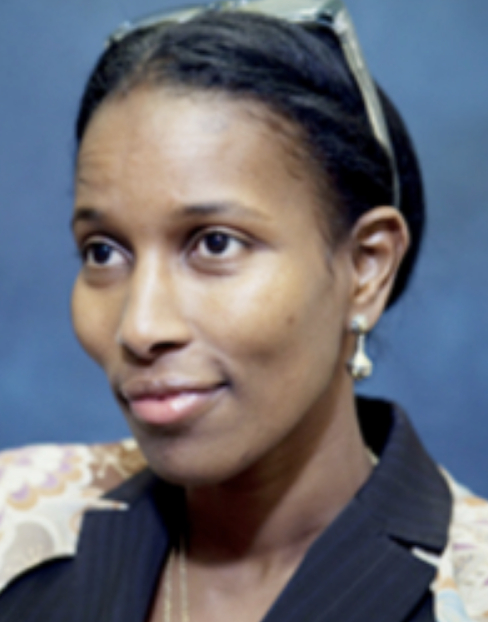On this date in 1969, author and politician Ayaan Hirsi Ali was born in Mogadishu, Somalia. Her family moved often during her childhood, seeking political asylum because her father Hirsi Magan Isse was a revolutionary opposition leader. Raised as a devout Muslim, she endured a traumatic genital mutilation when she was about 5. Her grandmother had secretly arranged the religious rite to take place while her parents were out of town.
In her early 20s she was told by her father that a marriage to a cousin in Canada had been arranged and that she had no choice in the matter. Fleeing the marriage and seeking political asylum, Ali went to the Netherlands in 1992. There she earned a master’s degree in political science and became a fellow at the Wiardi Beckman Foundation. She was first elected to the Dutch parliament in 2003. A prominent critic of Islam, Ali spoke out publicly against the abuses of women. She was also active in seeking to reform the handling of asylum seekers.
Two books she wrote were controversial, The Son Factory: About Women, Islam and Integration (2002) and The Caged Virgin: An Emancipation Proclamation for Women and Islam (2003). She was named by Time magazine in 2005 as “one of the 100 most influential people in the world.”
Ali considered herself a Muslim until May 28, 2002, when she said she became an atheist while sitting in an Italian restaurant drinking a glass of wine: “I asked myself: Why should I burn in hell just because I’m drinking this? But what prompted me even more was the fact that the killers of 9/11 all believed in the same God I believed in.” (Interview, “Das Magazin,” September 2006.) Ali wrote the script for the 2004 film “Submission,” which criticized the treatment of women in Islamic society, bringing her to international notice.
Two months after its release, the film’s producer, Theo van Gogh (great-grandnephew of Vincent van Gogh), was murdered as he bicycled in Amsterdam by a Moroccan member of a Dutch Islamist terrorist organization. The assailant had pinned a death threat to Ali on van Gogh’s body and she was forced to go into hiding. She resigned from the parliament and moved to the U.S., working for the American Enterprise Institute, a conservative think tank.
Ali’s autobiography Infidel was published in English in 2007. She received FFRF’s Emperor Has No Clothes Award in 2010, the same year her book Nomad was published. In 2015, Heretic: Why Islam Needs a Reformation Now was released. She founded the AHA Foundation, a nonprofit working to end “honor” violence, forced marriage and female genital mutilation. She is married to the Scottish historian Niall Ferguson. They have two sons.

